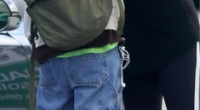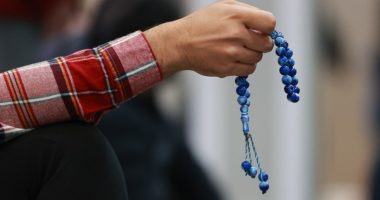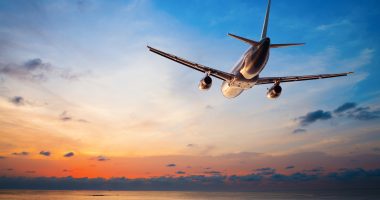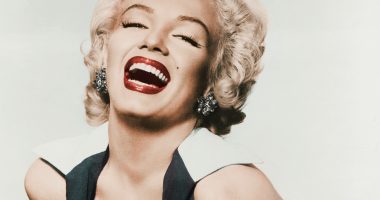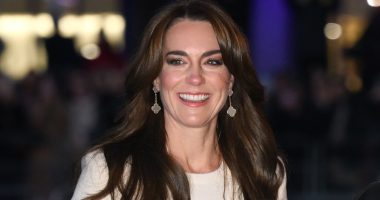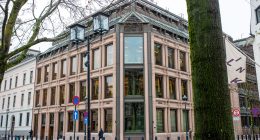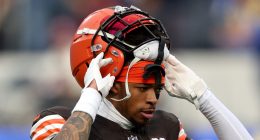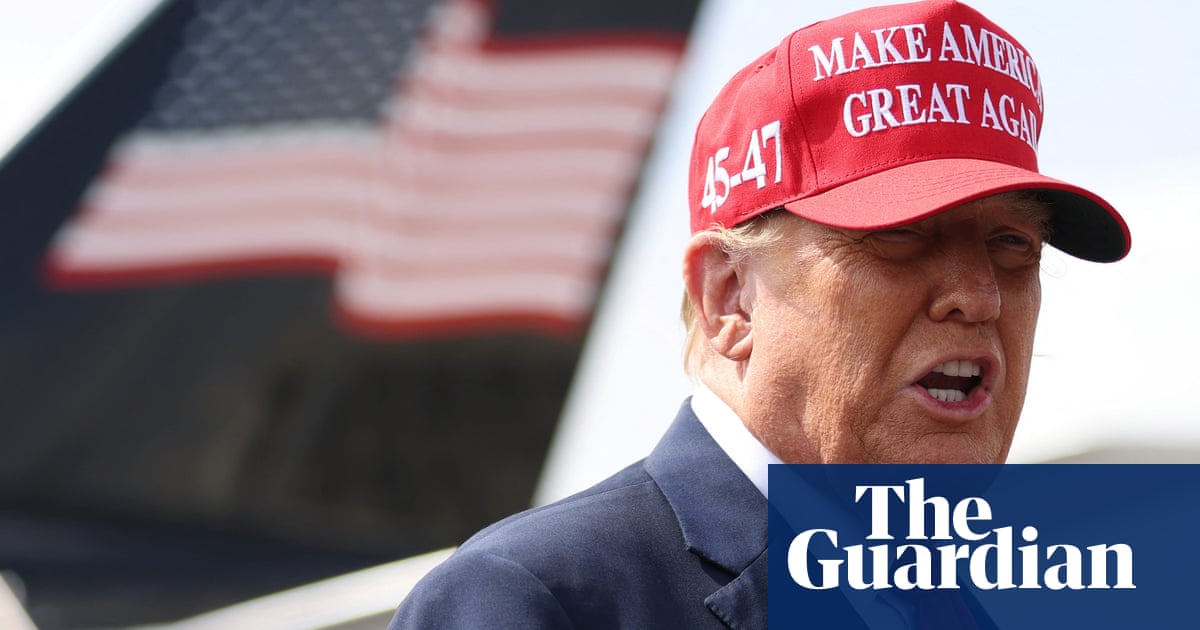
Joe Biden was effusive in his praise for Japan and its “bold” prime minister, Fumio Kishida, during a state visit that took place this week amid new and growing security threats in the Asia-Pacific, wars in Ukraine and Gaza, and months of political uncertainty ahead for both leaders.
The first ladies, Jill Biden and Yuko Kishida, exchanged gifts and hugs, there was talk of cherry blossoms and a state banquet menu inspired by Japanese cuisine – and even a half-decent joke from Kishida about the Flintstones.
But Kishida’s speech to Congress on Thursday – only the second by a Japanese leader – was largely short on humour.
“I detect an undercurrent of self-doubt among some Americans about what your role in the world should be,” he said. “The international order that the US worked for generations to build is facing new challenges, challenges from those with values and principles very different from ours.”
He was referring to the loose alliance of nations lining up to challenge the US-led hegemony, in Europe in the form of Russia, but also closer to home in northeast Asia, where an increasingly assertive China is causing alarm in the South And East China seas, and a nuclear-armed North Korea sinking deeper into the embrace of a needy Kremlin.
But Kishida may as well have been referring to another potential threat to the international order and his country’s relations with the US – the possible election in November of Donald Trump.
US-Japan ties – described by the former US ambassador to Japan, Mike Mansfield, as the most important in the world, “bar none” – could look very different under a Trump administration.
The warning signs emerged during his first term, when Trump urged Japan – and Washington’s other “free-loading” ally in the region, South Korea – to foot more of the bill towards hosting US forces, warning that failure to comply could see those troops removed.
That never came to pass, but unease about a possible Trump Mark II is running high in Japan, prompting the return to the lexicon of moshitora, or “What if Trump?” and a more emphatic follow-up: hobotora – “almost certainly Trump”.
Japanese attempts to pre-emptively court Trump, and understand what his presidency might mean for Japan, have failed. Taro Aso, a former prime minister, tried unsuccessfully to arrange a meeting earlier this year, according to media reports, while the foreign ministry has mobilised diplomats across the US to analyse any mention of foreign policy the Republican nominee makes during his campaign.
Less than eight months before the presidential election, the indications are that a Trump White House could shake the foundations of the US-Japan security arrangements referred to in such glowing terms by Biden and Kishida.
Under Kishida, Japan has adhered to the US playbook, vowing to double its defence budget over five years through to 2027 and easing strained ties with its neighbour South Korea, while remaining on message over Russian sanctions. It will develop a next-generation stealth fighter jet with Britain and Italy, and acquire the ability to launch “counterstrikes” against enemy targets, presumed to be North Korean missile sites. There is talk, too, of a future role for Tokyo in the Aukus defence partnership alongside the US, Britain and Australia.
A second Trump White House would throw curveballs in Japan’s direction, according to his former national security adviser John Bolton, who said recently that his former boss had a “lack of appreciation for what American alliances do”.
In policy terms, that could mean rewriting the countries’ 1960 security treaty. As president, Trump criticised the “one-sided” nature of the US-Japan alliance, because the treaty requires the US to intervene if Japan is attacked but places no reciprocal obligation for its “pacifist” ally.
“Get ready for Trump to say, ‘I want the treaty amended so that Japan is also obligated to defend the United States,’” Bolton said in an interview in March with Nikkei Asia.
Any uncertainty in Tokyo and Seoul over US commitments to the defence of its allies would ramp up the risks in an already unstable region, he added. It would, Bolton said, “lead, in Japan, in South Korea, and elsewhere, to the question, ‘Should we get our own nuclear weapons? If we’re not under the US nuclear umbrella, maybe we need our own.’”
To complicate the picture, there is no guarantee of political continuity on either side of the Pacific.
When he returns to Tokyo this weekend, Kishida will be confronted by the fallout from a funding scandal that has pitted him against the most powerful faction in his ruling Liberal Democratic party (LDP) and sparked speculation about his future.
Despite disciplining dozens of MPs and apologising for the scandal, Kishida’s approval rating slumped to 23% in a poll published this week, down two percentage points from last month.
While Japan does not have to hold a lower house election until autumn 2025, an LDP defeat in a byelection later this month could further weaken Kishida.
“LDP lawmakers have already suggested that if the LDP loses … it could trigger a movement to unseat Kishida in the coming months,” said Tobias Harris, the founder of Japan Foresight, a political risk advisory firm in Washington.
The US’s commitment to the defence of Japan is “ironclad”, Biden claimed this week. But look closer, and it is impossible to ignore the signs of danger.
Read More: World News | Entertainment News | Celeb News
Guardian

